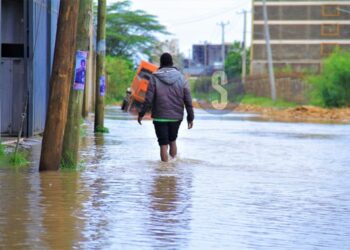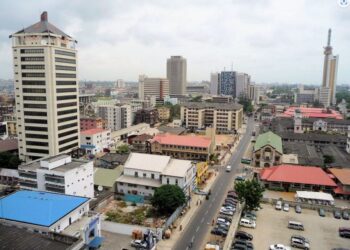The Chief Executive Officer of EnvAccord Limited, Mr. Ibrahim Salau, has said that stakeholders in Nigeria’s agricultural sector will need to collaborate on building data to tackle the impacts of climate change on the sector.
Salau stated this on Saturday during the May edition of the Nairametrics Industry Outlook webinar. According to him, Nigeria’s inflation, which currently stands above 33%, is driven largely by food inflation, hence the need for food security.
He noted that agriculture is one of the most vulnerable sectors to climate change as changing weather affects yields and food production.
Salau noted that while individual organizations could generate their data to predict the weather, such would not be as effective as having a central database built by professionals that everybody can access.
Agriculture and climate change
Emphasizing the need to address the challenge of climate change in Nigeria and mitigate its impacts on the agric sector, Salau said,
“As far as climate change is concerned, the agriculture sector is one of the most vulnerable to climate change’s impacts. To be able to respond to this challenge, we need information, we need data, for example, about the changing precipitation patterns.
“In getting this, there are many ways; each company can decide to get its data, but how effective can that be compared to where we have the entire aggregate sector coming together and working with, say, the University of Lagos, establishing a research centre for monitoring the changing precipitation data nationwide and then having each organization in that agric sector paying a token to access the information that they need?”
Stressing the importance of information in addressing climate change issues, Salau said organizations first need to know what climate change means to them and to their business to enable them to know the right things to do.
Climate insurance
The EnvAccord CEO said climate insurance is now growing in Nigeria as farmers begin to realize climate change’s role in their business. Like traditional insurance, he said farmers are now able to transfer their risks to the insurance companies to guarantee their revenue irrespective of changes in weather conditions.
“From what we are seeing in Nigeria, the climate insurance sector is evolving in response to climate change challenges. We are also seeing some revolutionary government and regulatory support. The government has been active in promoting climate resilience policies or frameworks,” he said
Salau also cited the establishment of the National Agricultural Insurance Corporation to support farmers as an example of what the government is doing in terms of climate insurance for farmers. According to him, the Corporation ensures that farmers have access to insurance products that are tailored towards their needs.
“In addition, the Climate Change Act of 2021 provides a framework for integrating climate change action into national development priorities. Then there is the issue of sustainability, businesses in Nigeria are increasingly incorporating ESG principles into their operations,” he added.
The Nairametrics Industry Outlook for May had the theme: ‘Climate Change Resilient Strategies for Businesses’. Conversations at the webinar explored how climate-induced extreme weather events disrupt supply chains for businesses in Nigeria, and proposed resilient strategies such as diversification of suppliers, stockpiling, or adoption of climate-resilient technologies.
























